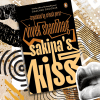Why buying books in English medium schools is needlessly expensive and wasteful

In many Bangladeshi English medium schools, students have to pay prices upwards of BDT 15,000 to simply buy their textbooks for the year. In O levels and A levels, the cost of buying academic textbooks is even higher and can reach as high as BDT 30,000 in some instances. Keep in mind, these numbers do not factor in the costs of stationary or supplementary books. For students to buy at such prices is financially burdening and unnecessarily wasteful.
For the most part, the prices of these books are justified due to their superior print quality and costly import process. Whilst this would be a valid argument in any other situation, due to a lack of adequate syllabus material, the vast majority of English medium students often end up relying on note sheets and supplement books instead of said textbooks, rendering this (often forced) investment useless.
"I know for a fact that I barely touched some of my textbooks during my A levels. There was almost a disconnect between what the teachers and students wanted and the books that we were made to use. We used some of these books only to learn one chapter and basically threw away the rest of it," shares Noushin Ahmed*, a high school graduate.
These new textbooks often go untouched throughout the entire school year and can pose significant environmental repercussions. Paper recycling mills are far and few in the country, and a lack of accessibility means that most of these textbooks are incorrectly disposed of once the academic year is over. Paper waste takes up valuable landfill space and contributes to acid rain, becoming an environmental hazard.
Such practice can have negative effects on the students, too. Buying textbooks every year diminishes the habit of taking proper care of one's books, and presents books as disposable and temporary, which it unequivocally is not. Additionally, this tradition of buying books every year contradicts these educational institutions' climate initiatives, and to some extent, reduces the concept of climate activism to a gimmick in the students' minds.
This problem, however, is one with many solutions.
For starters, schools could implement a system to reuse books from previous years for teaching during classes. Not only would this significantly reduce the overall costs and waste generated, but it would also help students nurture the habit of taking care of books for future use. Since syllabus content changes only slightly once every three or four years these books could be used for an extended amount of time until they become outdated.
Digitising said books are also a viable alternative.
"PDFs can work pretty well instead of books, and many people do actually end up using PDFs while studying for A Levels," remarks Adrita Zaima, a high school student at a reputed English medium school in Dhaka. Additionally, schools could keep buying physical textbooks as an option for students who absolutely need one.
*Names have been changed upon request for anonymity
Reference:
compostingwithredworms.com (July 21, 2023) Environmental Impact of Paper Waste.

 For all latest news, follow The Daily Star's Google News channel.
For all latest news, follow The Daily Star's Google News channel. 








Comments